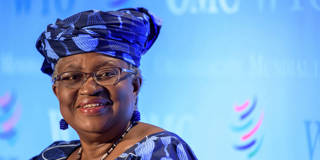The Trade Agenda Today
Neither the breakdown of multilateralism nor the rise of the digital economy has made international trade and its central governing body any less important. An open, transparent, rules-based trading system remains crucial for driving economic development and addressing global problems like climate change.
From rising populism and the COVID-19 pandemic to Russia’s invasion of Ukraine, this has already been an extraordinarily difficult decade for global trade and the principles, rules, and multilateral institutions that sustain it. To assess the current state of the international trading system and what lies in store for it, Anne O. Krueger, a former chief economist at the World Bank, queries World Trade Organization Director-General Ngozi Okonjo-Iweala on what she sees as the biggest challenges and opportunities.
Hard Times
Anne O. Krueger: Following Russia’s invasion of Ukraine, trade has been weaponized to punish the Kremlin. What do you think the long-term consequences of this approach will be?
Ngozi Okonjo-Iweala: The war affects all multilateral organizations, and the WTO is no exception. Since member states cannot ignore the conflict, they will need to make their views known as they see fit, within the WTO and elsewhere.
The multilateral trading system had its origins in the idea that trade and interdependence would foster peace and prosperity, and that stable global relations would in turn facilitate trade flows. The past 75 years have been remarkably prosperous and peaceful by historical standards.
